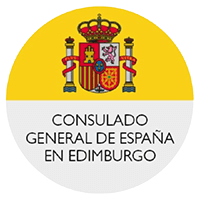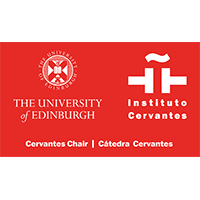Interview with Antonio Morales, director of ‘Marisa in the Woods’.
Who is Marisa and where are the woods? Can you summarise your film?
Marisa is the main character of the film, the vehicle through whom we see the cityscape of Madrid, a city plunged into the financial crisis but populated by unique and optimistic characters. I like to define the film as a road movie without a car, the camera sticks to Patricia Jordá (Marisa) from an everyday world that gets transformed into a Wonderland.
‘Marisa in the Woods’ was made with support from crowdfunding. Was this your first choice in order to have creative freedom over the project or was it an alternative option due to the difficulties of making a feature-film in Spain?
In Spain, it’s impossible to obtain money for a debut film unless you have a patron or you’ve worked before in other sections of the film industry. So, I decided to go for the crowdfunding option. Also, when I was just looking for advice (and encouragement) from those professionals I knew already, or happen to meet, almost all of them discouraged me. They told me that what I wanted to do was impossible, but I ended up doing it. Along this journey, I had to became very strong. I trusted in the project a lot, and especially in all the talented and enthusiastic people who took part of the film. It’s been incredibly difficult to put all these pieces together and to film a movie in two weeks on a shoestring budget.
To motivate myself, I watched the low-cost debut films of some of my favourite filmmakers (Jim Jarmush, Derek Jarman, Pedro Almodóvar, David Cronenberg, John Waters…) and it definitely worked.
Where has the film been screened? What reaction have you received?
The film officially premiered in last year’s European Film Festival in Seville, in the Resistances section which is exclusively focused on new Spanish cinema. From here, it appeared in sections in the D’A Film Festival in Barcelona and also in FILMADRID, which is a very young festival in the capital that has become a key date for world and independent cinema in only three years.
Apart from these three, we’ve been selected by cities, almost twenty to date, throughout all of Spain and in international festivals like Mexico (FIMCY), Portugal (AVANCA) and Colombia (Bogocine). But the most surprising element has been the good reception given by film critics.
As a filmmaker, has your situation changed? What do you expect from the future?
At the moment, I’m working on three scripts, with more emphasis on a project that allows me to film with more calm and with more support. I’m interested in working with a big team and being able to consider more complex challenges. But at the same time, it’s a bit overwhelming with the discussions about casting, the budget, and all that. This is an old debate between creativity and the demands of the industry. My ideal as a filmmaker would be to enjoy that same freedom with small and medium budget films, like the ones by Agnés Varda, Eric Rohmer, R. W. Fassbinder or John Cassavetes.
But the most important change has happened inside me. Because of my humble and rural origins, I grew up with enormous family pressures, where making films was seen as a child’s fantasy. Had I said that I wanted to be an astronaut, I’m sure they would have accepted it better.

















